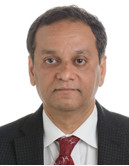| Wednesday, November 11, 2015 |
| 8:30 am | Registration |
| 9:00 - 10:00 am |
Plenary Session
- H.E. Dr. Mohammad Yousef Al-Hashel, Governor of the Central Bank of Kuwait
-

Dr. Mohammad Yousef Al-Hashel is the Governor and Chairman of the Board of Directors of the Central Bank of Kuwait (CBK). He is also the Alternate Governor of the State of Kuwait at the International Monetary Fund, and the Arab Monetary Fund. Besides that, Dr. Al-Hashel is a member in many Higher Councils in the State of Kuwait, such as: Higher Petroleum Council, Board of Directors at Kuwait Investment Authority, and Chairman of the Board of Directors at the Institute of Banking Studies. Dr. Al-Hashel is also a member in many regional and international institutions, including the Governing Board of the International Islamic Liquidity Management (IILM), the Council of the Islamic Financial Services Board (IFSB), the FSB Regional Consultative Group for the Middle East and North Africa (MENA), and Chairman of the Board of Directors of the Gulf Monetary Council. Prior to assuming his position as a Governor, Dr. Al-Hashel had served as Deputy Governor, Executive Director of Supervision Sector, and off-site Supervision Department Director at CBK. Dr. Al-Hashel was a teaching professor at the College of Business Administration, Kuwait University, before joining the Central Bank of Kuwait. Dr. Al-Hashel holds a PhD in Finance.
- H.E. Ms. Christine Lagarde, Managing Director of the International Monetary Fund
-
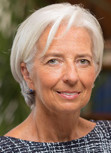
Born in Paris in 1956, Christine Lagarde completed high school in Le Havre and attended Holton Arms School in Bethesda (Maryland, USA). She then graduated from law school at University Paris X, and obtained a Master’s degree from the Political Science Institute in Aix en Provence.
After being admitted as a lawyer to the Paris Bar, Christine Lagarde joined the international law firm of Baker & McKenzie as an associate, specializing in Labor, Anti-trust, and Mergers & Acquisitions. A member of the Executive Committee of the Firm in 1995, Christine Lagarde became the Chairman of the Global Executive Committee of Baker & McKenzie in 1999, and subsequently Chairman of the Global Strategic Committee in 2004.
Christine Lagarde joined the French government in June 2005 as Minister for Foreign Trade. After a brief stint as Minister for Agriculture and Fisheries, in June 2007 she became the first woman to hold the post of Finance and Economy Minister of a G-7 country. From July to December 2008, she also chaired the ECOFIN Council, which brings together Economics and Finance Ministers of the European Union.
As a member of the G-20, Christine Lagarde was involved in the Group's management of the financial crisis, helping to foster international policies related to financial supervision and regulation and to strengthen global economic governance. As Chairman of the G-20 when France took over its presidency for the year 2011, she launched a wide-ranging work agenda on the reform of the international monetary system.
In July 2011, Christine Lagarde became the eleventh Managing Director of the IMF, and the first woman to hold that position.
Christine Lagarde was named Officier in the Légion d'honneur in April 2012.
|
| 10:00 am - 10:15 am | Coffee Break |
| 10:15 am - 11:45 am |
Session I: Increasing Financial Inclusion and Growth through Access to Finance
Islamic finance institutions provide a good platform for increasing financial inclusion of underserved population and access to finance for SMEs, thereby supporting growth and economic development. According to a study conducted by the International Finance Corporation, based on nine countries (Egypt, Iraq, Jordan, Kingdom of Saudi Arabia, Lebanon, Morocco, Pakistan, Tunisia, and Yemen) in the Middle East and North Africa and Pakistan, there is a potential gap of US$8.6 billion to US$13.2 billion for Islamic SME financing, with a corresponding deposit potential of US$9.7 billion to US$15.0 billion across these countries. There is, therefore, a large untapped potential for Islamic financing in this area. Removing regulatory and tax impediments to equity-like financing, and strengthening financial infrastructure would help penetration in this segment.
Moderator:
- Mr. Masood Ahmed, Middle East & Central Asia Department, International Monetary Fund
-

Masood Ahmed has been Director of the Middle East and Central Asia Department since November 1, 2008. He obtained his graduate and post-graduate degrees in Economics from the London School of Economics, where he also served on the economics faculty. He was born and brought up in Pakistan.
Before taking up this position, Mr. Ahmed was the Director of the External Relations Department in the IMF since May 1, 2006.
Between 2003-06, Mr. Ahmed served as Director General for Policy and International Development at the UK Government's Department for International Development (DFID).
Between 2000-03, Mr. Ahmed was Deputy Director in the IMF's Policy Development and Review Department. In this role, he served as the senior staff focal point for taking forward the IMF's policy work in support of low income member countries and its relationship with the World Bank and other development agencies.
Between 1979 and 2000, Mr. Ahmed held a number of positions in the World Bank. He worked for about 10 years on country programs and projects in different regions and, for a further 10 years, on international economic policy relating to debt, aid effectiveness, trade and global economic prospects. As Vice President for Poverty Reduction and Economic Management, Mr. Ahmed was the senior World Bank manager responsible for the development of the Poverty Reduction Strategy Paper approach as well as the HIPC Debt Initiative.
He also served concurrently for a year as Acting Vice President for Private Sector Development and Infrastructure.
Panelists:
- H.E. Anas Al Saleh, Deputy Prime Minister and Minister of Finance, State of Kuwait
-
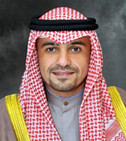
Anas K. Al Saleh has been serving as Deputy Prime Minister since January 2015 and Minister of Finance since January 2014. . He is also currently the Chairman of Kuwait Investment Authority. He was the chairman of foreign investment capital committee, and also served as minister of commerce and industry from February 2012 to January 2014. He completed a Bachelor Degree in Business, Finance, at Portland State University 1997.
Prior to ministry he worked in the private sector and was board member of Kuwait Chamber of Commerce and Industry (KCCI) from 2006-2012, member in the Board of Directors for Al-Deera Holding Co. (K.S.C.) from 2004-2006, Vice Chairman for Kuwait Invest Co. (K.S.C.) from 2006-2010, and Member in the Board of Directors in Financial Services Group Co. (K.S.C.C.) from 2000-2003.He was also a member in the Board of Directors for Jeezan Real Estates Co. (K.S.C.C) from 1997-2003. He held the title of CEO for EFG-Hermes IFA Co. (K.S.C.) from 1997-2010, and Chairman of IFA Securities (Brokerage Company) in U.A.E. from 2006-2010.
- H.E. Senator Ishaq Dar, Minister for Finance, Revenue, Economic Affairs, Statistics and Privatization, Pakistan
-

A leading financial-cum-economic expert, Senator Mohammad Ishaq Dar is a senior leader of Pakistan Muslim League (N) from Punjab. Senator Dar bears an impressive profile detailing an unprecedented track record finely bedecked and evenly interspersed with illustrious achievements and services on various fronts of human endeavor.
From his enviable educational record to professional acumen, and from his peerless political career to holding various important portfolios, Senator Dar stands out par excellence, and is widely recognized as a technocrat-politician.
His commitment to national interests, democracy, rule of law, profession, and humanitarian pursuits, combined with impeccable knowledge of finance, economy, trade and industry, has resulted in numerous accolades and achievements during his career. On the academic front, Senator Dar has had renowned institutions among his alma maters, including Government College (now Government College University), Lahore, and Hailey College of Commerce, University of Punjab, Lahore (1966-69). He was awarded two Gold Medals and a Roll of Honour for First position in B. Com. (Hons) at the University of Punjab.
- H.E. Dr. Fahad Abdullah Al-Mubarak, Governor, Saudi Arabian Monetary Agency
-
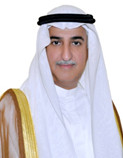
Fahad Almubarak is Governor of the Saudi Arabian Monetary Agency-SAMA (central bank of Saudi Arabia) as from 13 December 2011. Before joining SAMA he was Chairman of Saudi Stock Exchange (Tadawul), Member of the Shoura Council and was Chairman and Managing Director of Morgan Stanley Saudi Arabia.
Almubarak started his career as Assistant Professor at King Fahad University of Petroleum and Minerals. He worked in executive management positions providing investment management and corporate finance advisory services during most of his career. Almubarak served on many private and public companies' board of directors in several industries.
Almubarak received his PhD in Business Administration, Masters in Business Administration and Accountancy and Taxation from the University of Houston, USA in addition to Master in Engineering Management and Bachelor of Science Degree in Civil Engineering from SMU University, Dallas, USA.
- H.E. Dr.Erdem Başçı, Governor, Central Bank of Turkey
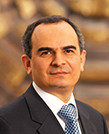
Born in Ankara in 1966, Dr. Erdem Başçı graduated from the Electrical and Electronics Engineering Department of the Middle East Technical University in 1987 with high honors.
He completed the M.B.A. program at Bilkent University by ranking the first (1989). Having obtained his M.A. in Economics from Bilkent University (1990), Dr. Başçı received his second M.A. degree in Economics from Johns Hopkins University (1993).
He obtained his Ph.D. in Economics from Bilkent University in 1995.
Between 1995 and 2003, he worked at Bilkent University, Economics Department, as an Assistant Professor.
He was promoted to the rank of Associate Professor in 1999. Monetary economics, financial economics, macroeconomic theory and mathematical economics are his research and teaching areas.
Dr. Başçı lectured at the University of York, UK as an honorary visiting fellow in 1999.
He has presented many discussion papers at international conferences.
Dr. Başçı's academic papers have been published in Oxford Economic Papers, Journal of Banking and Finance, Journal of Economic Dynamics and Control, and Journal of Mathematical Economics.
He also co-authored various chapters in books published by Springer-Verlag and Palgrave.
Besides his theoretical contributions to the economic literature, Dr. Başçı has academic publications on the Turkish economy as well.
Having served as Deputy Governor of the Central Bank of the Republic of Turkey since 9 October 2003, Dr. Başçı was appointed Governor on 19 April 2011.
- H.E. Dr. Ahmad Mohamed Ali Al-Madani, President, Islamic Development Bank
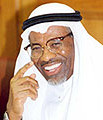 Dr. Ahmad Mohamed Ali Al-Madani is the first President of the Islamic Development Bank (IDB) since 1975.
Dr. Ali was born in Almadinah Almunawarah, Saudi Arabia, in 1934, where he completed early education. He holds a B.A. degree in Commerce and a degree in Law from Cairo University, Egypt. He earned M.A. and PhD degrees, both in Public Administration, from the University of Michigan, Ann Arbor, and, State University of New York (SUNY), Albany, USA, respectively in 1962 and 1967.
Dr. Ali began his career in education and manpower development in 1958-59 as Director, Scientific and Islamic Institute, Aden, Yemen. Later, he returned to Saudi Arabia to assume the position of Acting Rector of King Abdulaziz University during 1967 to 1972.
His contribution to the development of the people was recognized by the government of Saudi Arabia and in 1972 he was selected to serve as Deputy Minister of Education and served his country for three years.
Upon the initiative of the late King Faisal Bin Abdulaziz, when the member countries of the Organization of the Islamic Conference (OIC) decided to establish the Islamic Development Bank, he was chosen as its first President.
|
| 11:45 am - 1:15 pm |
Session II: Strengthening Regulation and Supervision to Foster Stability
There is a need to tailor regulations to the specifics of Islamic banks and for greater consistency of regulation and supervision. Islamic standard setters, including the Islamic Financial Services Board, have done an impressive job in establishing "rules of the road." However, existing evidence appears to suggest that these standards are not being applied consistently, which could stifle the development of Islamic finance or encourage its growth in a manner that creates systemic vulnerabilities. Therefore, continuous efforts will be needed to improve the extent to which existing standards for Islamic finance are applied, both nationally and internationally. This session will also cover issues related to the challenges with the implementation of the capital and liquidity standards of Basel 3 and macroprudential policies.
Moderator:
- Dr. José Viñals,Financial Counsellor and Director, Monetary and Capital Markets Department, International Monetary Fund
-

José Viñals is currently the Financial Counsellor and Director of the Monetary and Capital Markets Department of the International Monetary Fund (IMF). He is a member of the Financial Stability Board, representing the IMF.
His professional career has been closely tied to the Central Bank of Spain, where he served as the Deputy Governor after holding successive positions.
He has also held the positions of Chairman of the European Central Bank International Relations Committee; and Chairman of Spain’s Deposit Guarantee Funds.
He has been a member of: the Bank for International Settlements (BIS) Committee on the Global Financial System; the European Central Bank Monetary Policy Committee; and the high-level group appointed by the President of the European Commission to examine economic challenges in the European Union. He was also a member of the European Union Economic and Financial Committee and a Board Member of the Spanish Securities Authority, the Comisión Nacional del Mercado de Valores.
He holds a Bachelor's degree in Economics from the University of Valencia; a Master’s degree in Economics from the London School of Economics; and Master's and Doctoral (Ph.D.) degrees in Economics from Harvard University. He is a former Faculty Member of the Economics Department at Stanford University.
His awards include the Premio Rey Jaime I (King James I Prize) in Economics in 2001.
Panelists:
- H.E. Dr. Zeti Akhtar Aziz, Governor, Bank Negara Malaysia
-
 Appointed Governor of Bank Negara Malaysia in 2000, Dr. Zeti has had an important role in the successful transformation of Malaysia’s financial system including overseeing the enactment of ten new major pieces of legislation for the financial sector. She is actively involved in strengthening regional cooperation and financial integration in Asia. A founding member of the Bank for International Settlements Asian Consultative Council, she was also the first co-chair of the Financial Stability Board Regional Consultative Group for Asia. Dr. Zeti participates extensively in international fora in many parts of the world, including acting as the voice of emerging economies in highlighting their role in the global economy. She has had an influential role in the global development of Islamic finance and has been involved in the financial inclusion agenda at the national and international levels. Dr. Zeti received her PhD in Economics from the University of Pennsylvania.
- H.E. Rasheed Mohammed Al Maraj, Governor, Central Bank of Bahrain
-
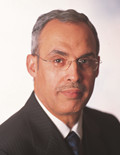 Mr. Al Maraj has been Governor of the Central Bank of Bahrain (CBB), previously the Bahrain Monetary Agency (BMA), since January 2005.
As Governor, Mr. Al Maraj carries ministerial ranking and is the chief executive of the CBB, which is responsible for ensuring monetary and financial stability in Bahrain. The CBB is also the single regulator of Bahrain’s financial services industry.
Mr. Al Maraj has a wealth of experience in finance, engineering and management and has served with the Government and the private sector.
His career highlights include senior positions with Government, having served as Assistant Under-Secretary at the then Finance and National Economy Ministry and Under-Secretary at the Ministry of Transportation.
Prior to his appointment as CBB Governor, Mr. Al Maraj was General Manager and Chief Executive Officer of the Arab Petroleum Investments Corporation (Apicorp), which is based in Dammam, Saudi Arabia.
Currently, Mr. Al Maraj is on the Boards of the Economic Development Board (EDB), National Oil and Gas Authority (NOGA) and member of the Board of Trustees of the Oxford Institute for Energy Studies, UK.
He has previously served as Chairman of the Bahrain Telecommunications Company, a member of the Consultation Council of the Co-operation Council for the Arab States of the Gulf and the Telecommunications Regulatory Authority (TRA) of Bahrain. Governor date of Birth is 9 December 1955.
- H.E. Abdellatif Jouahri, Governor, Bank Al-Maghrib
-
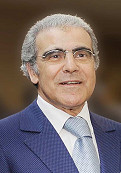 After completing graduate studies in law and finance, Mr. Abdellatif Jouahri joined Bank Al-Maghrib, where he held, between 1962 and 1978, several high-ranking positions as Director of the Inspection, Human Resources, Banking Control and Credit departments.
In 1978, he entered the government as Minister Delegate to the Prime Minister in charge of Public Enterprises Reform, before serving as Minister of Finance from 1981 to 1986.
Between 1986 and 1995, Mr. Jouahri was Chairman and CEO of Banque Marocaine du Commerce Extérieur and also Chairman of the Moroccan Bankers’ Association (GPBM). From 1995 to 2002, he engaged in consulting activities, particularly for international organizations such as the International Monetary Fund, the Islamic Development Bank and the Arab Fund for Economic and Social Development. He then served as Chairman and CEO of the Caisse Interprofessionnelle Marocaine de Retraite (Moroccan Interprofessional Pension Fund) in 2002-2003, during which he launched the Fund’s reform.
In April 2003, Mr. Jouahri was appointed by His Majesty the King as Governor of Bank Al-Maghrib.
Alongside his functions at the central bank, Mr. Jouahri chairs the following bodies: the Supervisory Board of the Caisse de Dépôt et de Gestion (Deposit and Management Fund), the Moroccan Financial Board, the Board of Trustees of Al-Akhawayn University, and the Moroccan Financial Education Foundation. He is also member of the Steering Committee of the Royal Institute for Strategic Studies.
Mr. Jouahri was appointed member of the Regionalization Advisory Commission in January 2010, member of the Economic, Social and Environmental Council in February 2011, member of the High Commission for National Dialogue on Judicial Reform in May 2012, and member of the Higher Council of Education, Training and Scientific Research in July 2014.
- Mr. Jaseem Ahmed, Secretary-General, Islamic Financial Services Board, Malaysia
-
 Jaseem Ahmed assumed the position of the Secretary-General of the Islamic Financial Services Board (IFSB) on 1st May 2011. As the SG he is responsible for the formulation, issuance, dissemination and adoption of the IFSB’s standards for the prudential regulation and supervision of Islamic finance covering banking, insurance and capital markets.
He has 25 years experience of experience in financial sector reform issues, and in the fields of public governance, expenditure management and fiscal decentralization. He has extensive experience in macroeconomic and financial sector stabilisation programmes in Asia.
As Secretary General, Mr. Ahmed contributes to the development of global standards for ethical conduct and regulation of the financial sector through his participation in international bodies. He is a member of the Consultative Group of the Basel Committee for Bank Supervision (BCBS), and also sits on the Consultative Advisory Groups of the International Auditing and Assurance Standards Board (IAASB) and the International Ethics Standards Board for Accountants (IESBA). In addition, Mr. Ahmed is a member of the International Monetary Fund’s (IMF) External Advisory Group on Islamic Finance. He is a member of the UK governments Global Islamic Finance Investment Group, an advisory body.
Prior to his appointment to the IFSB, Mr. Ahmed served as the Director, Financial Sector, Public Management and Trade, Southeast Asia Department of the Asian Development Bank (ADB). In this capacity, he was responsible for managing the ADB's lending, technical assistance, and capacity building operations in Southeast Asia for the banking and non-banking financial sectors, and for the strengthening of supervision and regulatory capacities. Mr. Ahmed also led the ADB response to the global financial crisis in Southeast Asia.
He was a member of the IFSB High Level Task Force on Liquidity Management, which proposed the establishment of the International Islamic Liquidity Management Corporation.
He is the co-editor of a book on Islamic Finance, and the editor of a book on Regional Economic Cooperation in South Asia.
Mr. Ahmed contributes to development of educational standards as a member of the Governing Council of the International Centre for Education in Islamic Finance (INCEIF), the global university for Islamic finance.
He serves on a pro bono basis as the External Advisor to the Art Acquisition Committee of Bank Negara Malaysia’s Art Museum.
Mr. Ahmed has a BA in economics from the University of Sussex and also a M.A. (Econ.) and M.Phil (Econ.), both from Yale University.
|
| 1:15 pm - 2:30 pm | Lunch |
| 2:30 - 4:15 pm |
Session III: Developing Sukuk and Other Long-Term Islamic Financing for Sustainable Development
Global issuance of Sukuk has grown significantly since 2006, reflecting increasing interest from sovereigns, multilateral institutions, multinational and national corporations from developed and emerging economies, in financing investments in a wide range of economic activities and development projects. The experience thus far shows the potential for Sukuk to help close countries’ infrastructure gaps. Key imperatives to deepen this market are: the development of the legal and regulatory framework, strengthening infrastructure, stepping up sovereign issuance with diversified maturities as part of public debt management plans underpinned by a strong public financial management framework, and developing the secondary market. International standards for accounting and statistical treatment of Sukuk need to be developed as well. Further, it is important to explore the role Islamic finance can play in promoting sustainable development.
Moderator:
- Dr. Mahmoud Mohieldin, Corporate Secretary and President's Special Envoy, the World Bank
-

Mahmoud Mohieldin is the World Bank's Corporate Secretary and President's Special Envoy on Millennium Development Goals, the Post-2015 process, and financial development. He is also in charge of coordinating the World Bank Group’s efforts to strengthen partnerships with the UN and multilateral development institutions.
Prior to joining the World Bank, Mr. Mohieldin held numerous leading positions in the government of Egypt and served on several boards of directors in the Central Bank of Egypt and the corporate sector. He was a member of the Commission on Growth and Development and selected a Young Global Leader of the World Economic Forum in 2005.
His professional experience extends into the academic arena as a professor of economics at Cairo University, also serving as member of the board of several universities in Egypt and holding leading positions in national and regional research centers and think tanks. He has authored numerous publications and articles in leading journals in the fields of finance and development in English and Arabic. He received his Ph.D. in economics from the University of Warwick, M.Sc in Economic and Social Policy Analysis from the University of York, and B.Sc from Cairo University.
Panelists:
- Dr. Ishrat Husain, Former Governor, State Bank of Pakistan and Dean and Director of Institute of Business Administration, Karachi, Pakistan
-
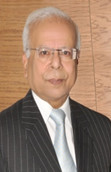
In his capacity as the Governor of State Bank of Pakistan played a pioneering role in the introduction of Islamic Banking in Pakistan in 2001. Today, Islamic Finance is the fastest growing segment of the banking sector in Pakistan. Along with nine other Central Bank Governors of Islamic countries, the Islamic Development Bank and International Monetary Fund (IMF), he was one of the conceptualizers and Founders of the Islamic Financial Services Board (IFSB) the standard setting body for Islamic Finance at the global level... He has also served as one of the founding members of the Governing Board of INCIEF, Malaysia for five years.
He is currently member of high powered Presidential Advisory Council of Islamic Development Bank consisting of eminent persons from member countries; a member of the Middle East and North Africa Advisory Group of the IMF; and a member of the IMF Advisory committee on Islamic Finance. He is invited regularly by the World Bank, IMF, IFSB, INCEIF, IRTI and the Islamic Finance industry in Pakistan and outside as a speaker, resource person and panelist on Islamic Finance industry . More recently, as the Dean and Director of the Institute of Business Administration (IBA), Karachi—one of the oldest and most prestigious Business school in Pakistan and the region—he has set up the Centre for Excellence in Islamic Finance (CEIF) of which he is the first Chairman.
- Dr. Mohamed Damak, Global Head of Islamic Finance, Financial Services Research, Standard & Poor’s Ratings Services
-
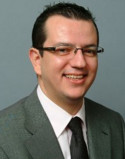
Mohamed Damak is a Director within the Financial Services at Standard & Poor’s Rating Services. He covers financial institutions in the Middle East and Africa region. Mohamed is also the Global Head of Islamic Finance within Standard & Poor’s, leading a global team of Islamic Finance analysts.
Before re-joining Standard & Poor’s, Mohamed worked as a Principal Credit Risk Officer for the African Development Bank in Tunis. From 2006 to 2010, Mohamed worked for Standard & Poor’s covering conventional and Islamic financial institutions in the Middle East and North Africa region.
Mohamed holds a PhD in Finance and MAS in “Money, Banking and Finance” from University of Paris 2, Pantheon Assas and a Master degree in Financial Institutions Management from Ecole Supérieure de Commerce de Tunis.
- Professor Datuk Rifaat Ahmed Abdel Karim, Chief Executive Officer, International Islamic Liquidity Management Corporation.
-
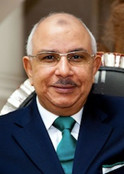
Professor Rifaat enjoys an international reputation as a leader and authority in the Islamic financial services industry (IFSI) at both the professional and academic sectors. He has pioneered the development of Islamic finance for the last several decades. His leadership in the formation of governance, regulatory and Shari’ah standards, as well as in the development of financial instruments to facilitate liquidity management for Islamic financial institutions (IFIs), has been instrumental in strengthening the position of the IFSI within the broader global economy.
Professor Rifaat has served as the inaugural Secretary-General at both the Accounting and Auditing Organisation for Islamic Financial Institutions (AAOIFI) and the Islamic Financial Services Board (IFSB). During his terms in office at the AAOIFI and the IFSB, Professor Rifaat played a key role in the conception and development of standards and guidelines for the IFSI.
In October 2012, Professor Rifaat assumed the position of Chief Executive Officer of the International Islamic Liquidity Management Corporation (IILM), an international organisation established in October 2010 by central banks, monetary agencies and a multilateral development organisation to facilitate liquidity management for IFIs. Under Professor Rifaat’s leadership, the IILM has successfully issued the first tradable, Shari’ah-compliant, US dollar-denominated highly rated Sukūk with a tenor of under one year. The IILM Sukūk, which are rated A-1 by Standard & Poor’s Rating Services, represent a new class of assets in the IFSI. These Sukūk are intended to assist IFI in mitigating the disadvantages they have been facing, compared to their conventional counterparts. As of July 2015, a total of $10.84 billion Sukūk have been issued and reissued at maturity.
Professor Rifaat's contribution to the IFSI has been recognized by the many prestigious international awards that he has received during his career over three decades. These awards notably include the (inaugural) 2004 Euromoney Outstanding Contribution in the Development of Islamic Finance and the 2010 Islamic Development Bank Prize in Islamic Banking and Finance. In 2010, the King of Malaysia awarded Professor Rifaat the Royal Malaysian Honorary Award of Darjah Kebesaran Panglima Jasa Negara (P.J.N.), which carries the title ''Datuk''.
- Mr. Mazin Saad Al-Nahedh, Group Chief Executive Officer, Kuwait Finance House, Kuwait
-
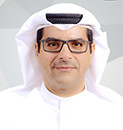
Mr. Al-Nahedh received his Bachelor’s degree in Finance from California State University
Sacramento in the U.S. awarded in 1992.
He possesses vast banking experience, spanning more than 20 years. During his
professional career, he assumed numerous leadership roles at the National Bank of Kuwait
(NBK) including his role as a member of the Management Executive Committee from
November 2010 to 2014. He also held the positions of Group General Manager, Retail
Banking Group from 2011 to 2014 and Group General Manager, Corporate Banking Group
from 2008 to 2011.
At NBK, Mr. Al-Nahedh also held the positions of Treasurer in 2008, Deputy General
Manager of the Treasury Department in 2006, Deputy Assistant General Manager in
2007, and Executive Manager for the Treasury Department in 2001. In addition, he was
promoted to various leadership positions within the Treasury Department of the bank from
1993 to 2001. Mr. Al-Nahedh began his work at the National Bank of Kuwait as a Banking
Relationship manager in the Corporate Banking Department in 1993.
- Mr. Abdulmohsen Abdulaziz Al-Fares, Managing Director/Chief Executive Officer, Alinma Bank, Saudi Arabia
-

Mr. Al-Fares is the managing director & Chief Executive Officer at Alinma Bank. In a career spanning close to 30 years, Abdulmohsen started his professional career at Saudi Arabian Monetary Agency (SAMA) in 1983 where he worked for 18 years in various positions which the last one was the Director of the General Accounting Department.
He worked at Ernst & Young in Los Angeles, USA for two years (1993-1995). He was also the Director General of the Department of Zakat and Income tax (DZIT) for four years (2001-2004), and Managing Director for Financial Services of Abdul Latif Jameel Group (ALJ) for more than two years (2004-2006).
He is a board member of Alinma Bank, a board member of Technical and Vocational Training Corporation, a board member of the Saudi Association for Certified Public Accountant (SACPA), and the chairman of Alinma Tokio Marine Corp. Mr. Al-Fares is also a member of the audit committee of Saudi Basic Industries Corp. (SABIC), and a member of Riyadh Regional Council.
He is a former board member of many corporations and organizations such as SABIC for 8 years, the General Organization for Social Insurance (GOSI), the Saudi Arabian General Investment Authority (SAGIA), the Saudi Agricultural Fund (SAF), and the Islamic Corporation for the Development of the Private Sector (ICD) for 8 years. He is also a former member of ICD executive committee, SABIC Finance committee, SABIC HR committee, a former chairman of Accounting Standards Committee (ASC) in Saudi Arabia, and a former chairman of the Accounting Standards Committee in the GCC. He was the chairman of the audit committee of ICD for 8 years.
Mr. Al-Fares has chaired and participated in several specialized committees, work teams for both private and public sector. He participated and attended several conferences and seminars specialized in finance, accounting, investments, management, and information systems.
He holds a degree in Accounting from King Saud University in 1982, and MA degree in Accounting from Western Illinois University (WIU) USA in 1989, and obtained his CPA in 1995.
|
